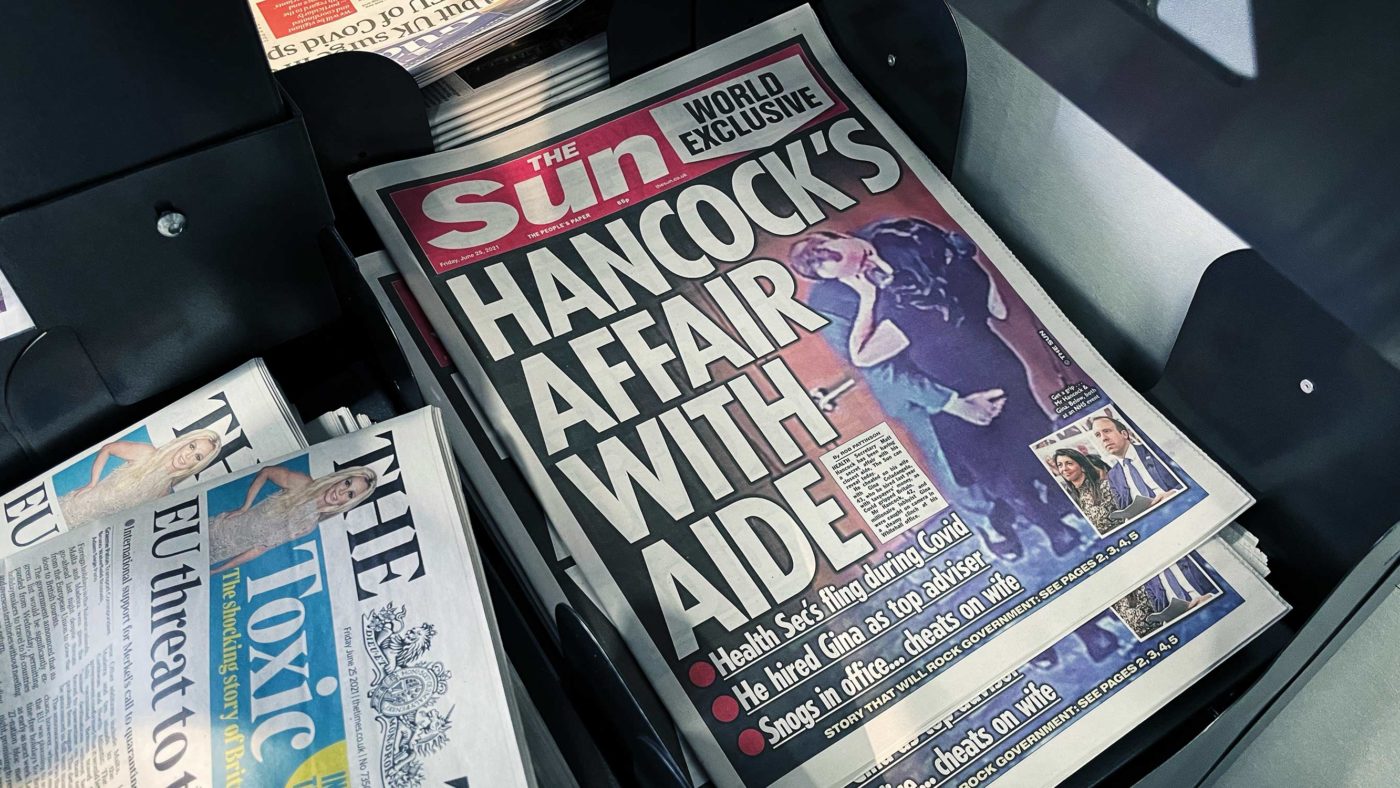One underweighted cost of the Government’s response to the pandemic is that it seems likely to have made many of us markedly worse citizens, at least in terms of voluntary compliance with the state. Matt Hancock’s admission that he broke social distancing rules with his aide is just the latest proof that the Government has spent the last year holding us to standards that they knew would be impossible to keep.
The rapid switching of lockdown and travel rules, along with the predictable growth in their complexity, at times left even the Prime Minister unable to clearly express precisely what we were meant to avoid doing. Their arbitrary nature, coupled with a focus on enforcing compliance rather than genuinely reducing harm, led to ridiculous spectacles like ministers having to explain under which circumstances you could drink coffee with a friend outdoors, a full six months after giving a tacit nod to Black Lives Matter protests, or police forces using drones to ensure people didn’t go for a solo walk in too nice a location.
If the Government is passing laws that even its most senior figures don’t understand, that its ministers feel no obligation to follow themselves, that change so frequently and are so arcane that it is almost impossible to keep up with them, then the incentive to try and follow them is at best limited.
This is particularly true when those rules are set in such a way as to limit much of what makes life worthwhile, while being particularly bad at reducing the spread of the virus. This is a government that presumed to tell you when you could and could not hug friends and family, that you could not visit relatives indoors at Christmas, that you could not walk in isolated beauty spots, that had the Queen sit alone at the funeral of her husband of 73 years, that prevented people saying goodbye to dying family members. Perhaps most relevant here is Hancock’s own joke that couples not living together should make quick decisions or find themselves kept apart, or his awkward answer about intimate contact only being legal in an “established relationship”.
If your rules deny people the ability to judge for themselves what is a risk worth taking and what is not, and are set in such a way as to prevent the most basic and essential human contact, it is all but certain they will be broken. To then turn around to the people who stuck to them despite tremendous personal cost and say you never thought they’d actually do so – that there was a nudge and a wink that some bending of the rules was ok – is insulting. For the minister conveying that message to have told us that any flexing of the rules “could be fatal” merely adds salt to the wound. The net result is that good citizens feel that they were taken for mugs; making sacrifices that provided room for rule-breakers, or that had no effect other than to make themselves miserable.
It is hard to think of a better way for a government to burn social capital than to spend a year engaged in an extended effort to demonstrate to people that the rules don’t make sense, aren’t enforced anyway, and are freely ignored by those making them. It would be surprising if people did not begin to wonder what other spheres of life this finding might apply to, particularly when the people who followed the rules to the letter out of public spirit realise how few others did.
Any government which demands extraordinary sacrifices time and time again but feels entitled to cheapen those through an unwillingness to take hard decisions to protect the country from the virus, or to ensure that its leading figures at least appear to follow the rules, should consider that people’s patience is not endless.
That said, the idea that this will result in an electoral backlash is a form of coping mechanism; there is no reason to think the Conservatives will be punished at the polls when the alternative is so weak. The real danger, though, is that the next time the people who followed the rules are called upon to make voluntary sacrifices, or follow unenforceable laws, there will be far less goodwill to draw upon.
Click here to subscribe to our daily briefing – the best pieces from CapX and across the web.
CapX depends on the generosity of its readers. If you value what we do, please consider making a donation.


